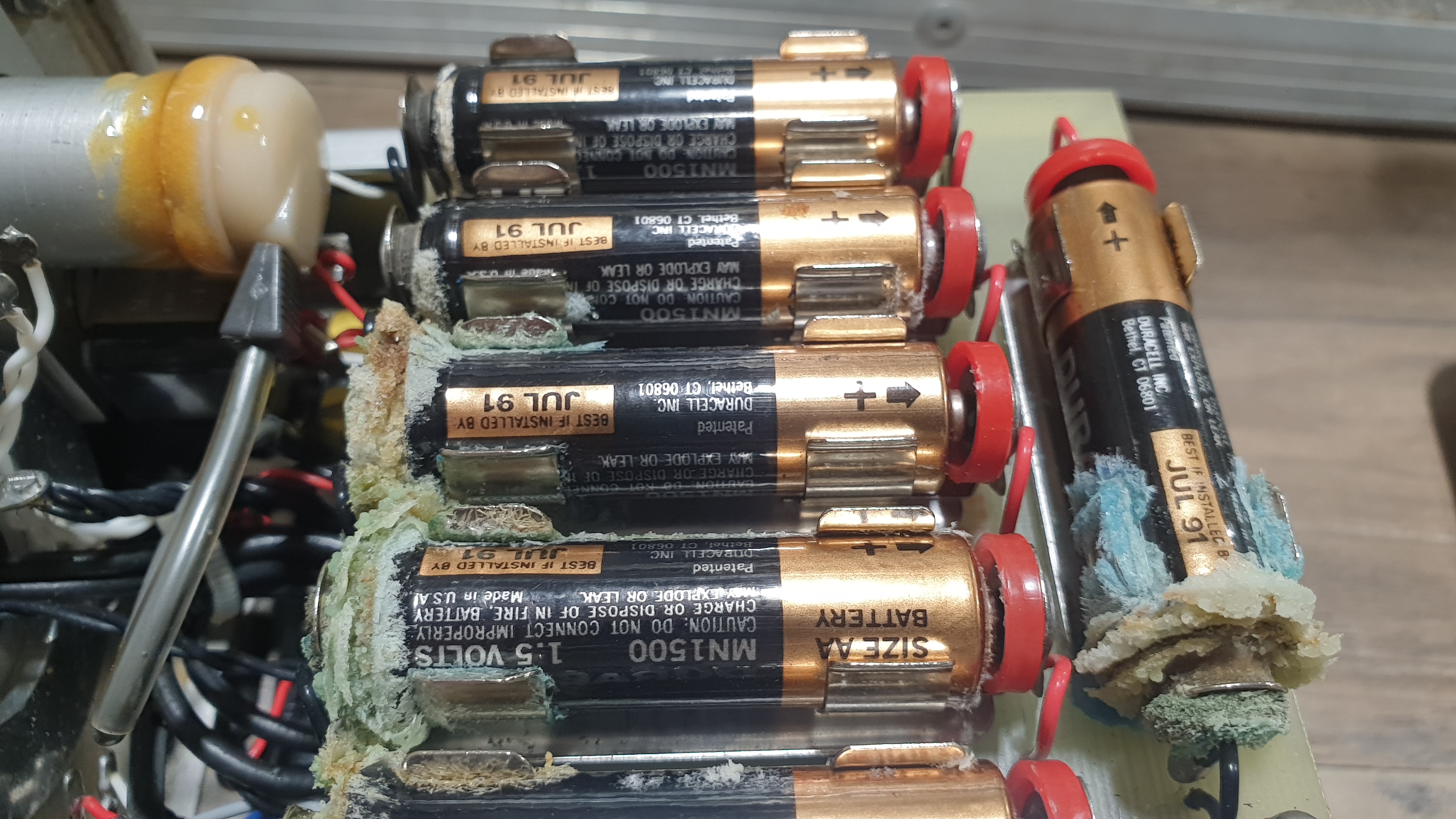this post was submitted on 16 Oct 2024
171 points (99.4% liked)
Electronics
1965 readers
97 users here now
Projects, pictures, industry discussions and news about electronic engineering & component-level electronic circuits.
Rules
1: Be nice.
2: Be on-topic (eg: Electronic, not electrical).
3: No commercial stuff, buying, selling or valuations.
4: No circuit design or repair, tools or component questions.
5: No excessively promoting your own sites, social media, videos etc.
Ask questions in https://discuss.tchncs.de/c/askelectronics
founded 1 year ago
MODERATORS
you are viewing a single comment's thread
view the rest of the comments
view the rest of the comments

Protip: once you dissolve as much of the gunk as possible, take a small metal brush and give the contacts a scrub. If they're coated, this helps open up metal contact surface to give the new batteries a chance.
But if the contacts are too corroded, you may need to MacGyver something with a soldering iron.
please advise how to dissolve the gunk at home (using household items, cleaning products, or something that is available at local stores).
Someone said "use acid", but I'm like "how the F am I supposed to get acid?"
Vinegar is acetic acid. Distilled Vinegar is quite useful as a general household cleaner.
Lemon juice contains citric acid.
CLR or a similar product that takes care of limescale (etc) is a mixture of acids.
Muriatic (another name for hydrochloric) acid is available from most hardware stores and can be used for dealing with rust.